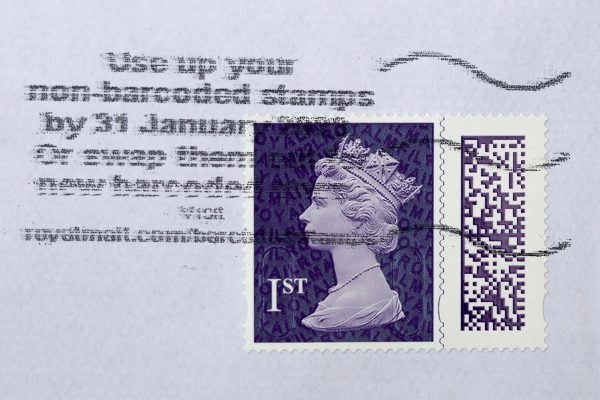The government have to get the Royal Mail sell off right. If the share price rises immediately after the sale then they will be accused of selling one of the country’s Crown Jewels at a knock down price. If the IPO bombs a la Facebook style then investors will have no confidence in government sales and disposing of the country’s temporary assets – the banks – any time soon will be almost impossible.
Let’s not forget that Royal Mail and the banks are effectively owned by the tax payer, so the government need to keep both investors and the British population happy and that’s a tricky balancing act.
 We love the Royal Mail
We love the Royal Mail
Royal Mail has been named as the second most improved brand for the first-half of 2013, according to YouGov BrandIndex, which tracks consumer perceptions. The government are selling an asset the country values and it would appear that the country has very little appetite for selling off the Royal Mail.
Not only must the sell off be a success, but the country loves the Royal Mail brand and will likely turn on the government if the share prices rises too high.
 Businesses view of the Royal Mail Sale
Businesses view of the Royal Mail Sale
A recent survey by Create.net has revealed that ecommerce businesses in the UK hold little faith in the privatisation of Royal Mail and have serious concerns that it will affect their businesses in a negative way.
Results show that whilst the vast majority of businesses do use Royal Mail, over 80% think that privatisation is the wrong choice.
Sarah Kibbler of MissCraft, who used to work for Royal Mail, said “It will be run more like a money-making business rather than a service, meaning prices may well go up. This could be crippling for me as a small business as my prices will have to go up. It could truly hurt small businesses which play a very key role in the country’s economy at the moment. This country needs to find its feet again, produce more jobs and get more companies out there, not make it harder for us”.
 54% of respondents felt that their businesses would be affected in a negative way, with some lamenting that further price rises and reduction of service could spell the end of online businesses serving rural areas. Sue Anderson of The Wrapping Ranch said, “Customers living in rural areas will definitely suffer with privatisation as deliveries will become scarcer and more expensive. Our business will suffer too as we supply goods to many customers in the highlands of Scotland etc. who do not have shops that sell our type of merchandise”.
54% of respondents felt that their businesses would be affected in a negative way, with some lamenting that further price rises and reduction of service could spell the end of online businesses serving rural areas. Sue Anderson of The Wrapping Ranch said, “Customers living in rural areas will definitely suffer with privatisation as deliveries will become scarcer and more expensive. Our business will suffer too as we supply goods to many customers in the highlands of Scotland etc. who do not have shops that sell our type of merchandise”.
However, not all respondents felt this would be the case, with Gary McConnell, who sells oriental imports through through his online shop Jade Bagua Imports, commenting “With Royal Mail answering to private shareholders, they will be held more accountable and I envisage an increase in quality not a decrease. I look forward to this vital part of my business being privatised and have absolutely no concerns whatsoever that service will be affected or that there will be any controversial price rises”.
Bernard Rangel, who sells jewellery online through his business Belissima B, felt this is the right time for change to be implemented in order for Royal Mail to keep up with modern business practice; “It should have been done ages ago. Governments are too prehistoric and covered in red tape to be agile in this new business environment”.
 Over 70% believe that a referendum should have been held over the decision and some respondents felt that even now they are ill-informed over what the privatisation could mean for their businesses.
Over 70% believe that a referendum should have been held over the decision and some respondents felt that even now they are ill-informed over what the privatisation could mean for their businesses.
Claire Mills of Crab Tree Lane who sells hand crafted gifts online said, “Public consultation of some kind would have been preferable. This could have a significant impact on private and business users which hasn’t been fully explored or communicated”.
 Public view of the Royal Mail Sell Off
Public view of the Royal Mail Sell Off
It would appear that the general public’s view of selling the Royal Mail matches that of businesses, two-thirds of British adults oppose the privatisation of the Royal Mail, including 36% of Britons who “strongly oppose” it.
YouGov research shows that selling the Royal Mail is opposed or strongly opposed by 67% of British adults, and supported by just 20%. Most of the passion about the plans appears to be among those who oppose it – 36% of Britons “strongly oppose” privatisation, compared to only 4% who strongly support it.
The government and Royal Mail management do of course assert that we’ve got it all wrong and that privatisation is a good thing. The Government has said it is not a good owner of large businesses and point to many successes such as Rolls Royce and BP who have flourished in private ownership. However not everyone is so sure, pondering the size of their energy bills which they now pay to to overseas investors.
One can’t help but wonder if the government is no good at running large businesses what they’re doing running the country. Surely UK Plc and the business of governing is akin to running a business? They have customers (the public) who consume their services, income (businesses and individuals that they tax), suppliers (we won’t bother mentioning large failed IT contracts and the like) and various business divisions to run (Police, NHS, Schools, Royal Mail).
If the government claim they’re not very good business owners it’s no wonder the country is in debt, but perhaps selling Royal Mail is the solution to the UK Debt mountain?
What difference will Royal Mail sale make to public finances?
The UK National Debt is about £1,377.4 billion so selling Royal Mail for £2-3 billion really won’t be noticed. Worse than that, the budget deficit (how much more the government overspends) is still running at about £121 billion. To date the country hasn’t paid a penny off it’s debt and it’s still growing with an overspend by the government of around £2.3 billion each and every week of the year.
Selling the Royal Mail for £2-3 billion will simply save one weeks overspend or in other words it’ll make no difference whatsoever to the country’s finances. It certainly won’t make even the tiniest of dents in the country’s trillion pound mountain of debt. It’s like owing twenty grand on your credit card and someone giving you a tenner.








19 Responses
.
As RM are into a good profit period, then I would postpone any floatation for a year.
The Government should grab the profits for a few years to come.
That will at least be another year from the General Election.
£2-3 billions is peanuts in today’s terms.
There arn’t many privatizations that have gone well. BT, maybe? Can’t think of any others.
The sooner RM are privatised the better.
They are rotting from the inside out and need to make substantial internal efficiency gains plus continued big investment if they are to even survive.
It won’t be pretty as they cut and re-organise but it has to happen otherwise they will continue to be an ever bigger drain on the public purse.
They are in a competitive market and there should be no issue with letting them compete with other carriers.
It will also, over time, flush out the true costs of the USO, and hopefully one day that will also get reduced to the absolute bare minimum.
Privatisation may enable another respected entity to accumulate enough shares to ‘take over’ RM.
But until then are we not simply left with the same management?
Perhaps we should all buy all the shares that we can get our hands on??
Just means that if they put up mail prices people will either go back to shops or not bother buying on-line.
RM prices are going to go up in any event – it is just a matter of how much and how quickly.
If they don’t tackle their internal inefficiencies and invest as well then prices will increase even more as their cost base balloons again compared to their competitors.
The politicians need to get RM at proper arms length to put the bite on the USO subsidy and force RM to make the required changes.
Probably short-term pain for longer term gain I’m afraid.
It’s a mess but it has been so for decades so it will take some fixing but as an online seller I also wish if didn’t have to be so hard.